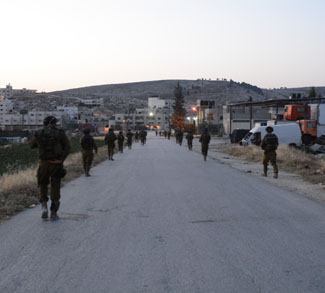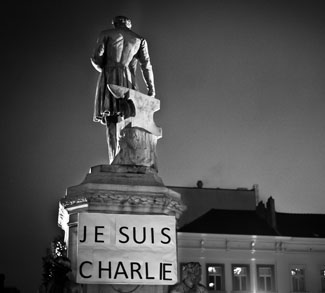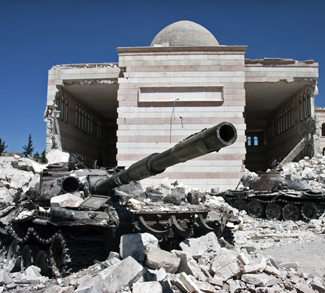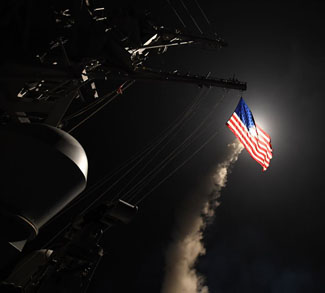About 44 years ago, when Syrian and Iraqi forces entered Jordan to assist Palestinian factions in an effort to topple King Hussein, Israel declared the Hashemite kingdom and its territorial integrity a vital interest. Yitzhak Rabin dispatched Israeli armor to the border, and Israeli jets buzzed Syrian tanks inside Jordanian territory. Whether causal or not, Syrian and Iraqi forces withdrew days later, and the Hashemite reign has endured in Jordan since the defeat of Black September.
Today, though Israel is governed by Revisionist Zionists quite unlike Rabin, core interests and patterns endure in the region amid the apparent chaos. In response to the ISIS Blitzkrieg through Iraq and Syria, Israel Foreign Minister Lieberman made it official in dialogue with his German counterpart and sole European ally of strategic importance: Israel would not allow ISIS to threaten Jordan and the stable buffer it provides from regional strife.
It is also no coincidence that the Hashemite monarchy and their royal counterparts in Saudi Arabia are the main Sunni conservative survivors after the flames of the Arab Spring died in the current Arab winter.
Whether endless civil war in Syria, or sectarian Sunni-Shia bloodshed in Syria and Iraq, the Arab world is in crisis such that the very foundation of the Arab state system under Sykes-Picot is now in question.
On Israel’s own doorstep, radical Islam in the form of Hamas has co-opted the secular government of Mahmoud Abbas in the West Bank. The murder of three Israeli teens and vigilante retribution is but one more contribution to the Mideast powder keg, as is ‘spillage’ from the Syrian civil war onto the Golan Heights and into Turkey and Lebanon.
Again, however, old patterns endure upon closer examination. Egypt’s overthrow of Mubarak gave rise to apparent radical Islam in Morsi. Yet from the very beginning, Morsi proved less radical than predicted as he brokered the Israeli-Gaza ceasefire. In the end, Morsi became a footnote.
If the interests of regional actors are constant and their behavior more predictable than it may seem, then one must consider that it is an outside force – the United States – that has lost direction and leadership in the region. It is this disengagement that has allowed the region to destabilize.
The premature US withdrawal from the Iraqi quagmire is an indisputable accelerant to the current ISIS terror. Elsewhere, the questionable American abandonment of Mubarak, followed by Washington’s determination to reinstate Morsi, and now the threats to Al-Sisi to withhold support has transformed the most natural of US allies such that it now is engaging in nervous flirtations with an eager Russia.
President Obama’s compromised position in Egypt was preceded by a classic diplomatic defeat at Putin’s hands in Syria. In the one moment where Obama recognized the legitimate use of force to punish Syria’s use of chemical weapons, Putin defused the crisis with an offer to negotiate and oversee Syrian chemical weapons destruction from the comfort of Moscow’s port at Latakia.
The Turks, too, remain miffed at Obama’s inaction on Syria and now in Iraq, with the one ironic consequence that Erdogan has found it in Ankara’s interests to warm up to Israel in order to contain Damascus. Here again, a return to an old pattern.
In a double irony, Obama’s protracted diplomacy with Syria’s Iranian sponsor over nuclear weapons development has opened a rare channel of common interest between Tehran and Washington to stop ISIS’ slaughter of the Shia and protect America’s man in Baghdad, Al-Maliki.
One has to return to the early 1970s to find this level of US-Iranian cooperation. So, if this were not ironic enough, then consider that Tehran and Jerusalem also share a common interest now in containing ISIS at the Jordanian and Syrian borders, just as they did against Black September.
Alliances may change, religious and ideological rhetoric may change, but the interests of the ethno-nationalist state seldom do.
The final irony? Where this article began by noting Israel’s re-commitment to Jordan’s territorial integrity, it ends with the observation that the US has not matched the Israeli position. Washington has provided no public assurances to Amman against ISIS. As reported by the The Guardian, Obama recognized the threat in public on June 22, but declined to provide US commitments.
If there has been one development some Western analysts might consider to be positive, then it’s the apparent emergence of a stable and pro-Western Kurdish de facto state in northern Iraq. Here again, however, Obama and Kerry refused to back a horse that has wanted inside Washington’s stable. Instead, they continued to push for a ‘whole’ Iraq.
If amid the chaos and challenges to the Arab state system, the Arab world seeks to right itself as per old patterns of alliance and balance diplomacy, the vacuum that perpetuates the crisis is a lack of American leadership. Obama may not have said so, but actors in the region are now behaving as though the US no longer considers the Middle East a vital interest.
The opinions, beliefs, and viewpoints expressed by the authors are theirs alone and don’t reflect any official position of Geopoliticalmonitor.com.




